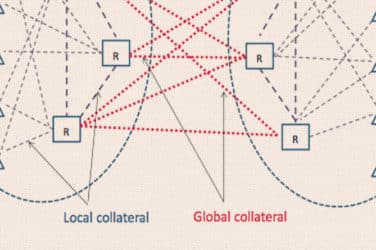
Some of Europe’s most senior lawmakers and regulators are now openly stating that new rules that require all over-the-counter traded derivatives to be processed through clearing houses will now not be in place in time in Europe.
The G20 group of nations had imposed a strict deadline of January 1, 2013, for regulators across the globe to adhere to in a bid to introduce far-reaching reforms to the $700 trillion global OTC derivatives market. Policymakers wanted all OTC derivatives to be traded on electronic platforms and, where possible, be cleared by central counterparties by this date.
The regulation in Europe tasked with implementing the reforms, the European Markets Infrastructure Regulation (Emir), is similar to that adopted in the U.S. under the Dodd-Frank Act.
The previously unregulated OTC derivatives sector, which accounts for roughly 95% of all derivatives trades, has been blamed for the global financial crisis and the collapse of Lehman Brothers in 2008. Forcing all derivatives trades through central counterparties will thus reduce the risk of default.
“Europe will not be subject to mandatory clearing by January 1, 2013, as the G20 requested,” Patrick Pearson, head of the European Commission unit that drafted Emir, told the TradeTech Swaps and Derivatives conference in London earlier this week.
Even the U.S., which is further along in the legislative process under Dodd-Frank, has yet to finish writing the rules. This has led to uncertainty developing on both sides of the Atlantic as firms are still yet to know the exact nature of the reforms.
The European Securities and Markets Authority (Esma), the pan-European regulator that has been tasked with writing Emir’s technical standards, has until September 30 to deliver the standards back to the European Commission. Before this, though, Esma plans to publish a consultation paper next month on Emir and hold a public hearing in July to take the work forward—offering market participants just two months to give their views on the detailed proposals. Intense lobbying from banks has brought into question the role Esma is playing, the perceived rushing through of the important reforms and whether Esma is, in fact, sufficiently staffed for the task in hand.
“Esma is going to meet the September 30 deadline on most, if not all, of the technical standards,” Kay Swinburne, a UK center-right MEP, who is also a member of the influential Economics and Monetary Affairs Committee at the European parliament, told Markets Media.
“That part is on track. The bit that won’t be is trading and moving to an appropriate electronic format. That won’t be done until MiFID II [the updated Markets in Financial Instrument Directive, which governs European financial markets, that is expected to become law in 2014] concludes.”
After September 30, the Commission, in theory, has until the end of the year to endorse the standards. But with these new admissions that deadlines are beginning to slip, it remains to be seen how far behind the rest of the world Europe lags on the derivatives reforms.




